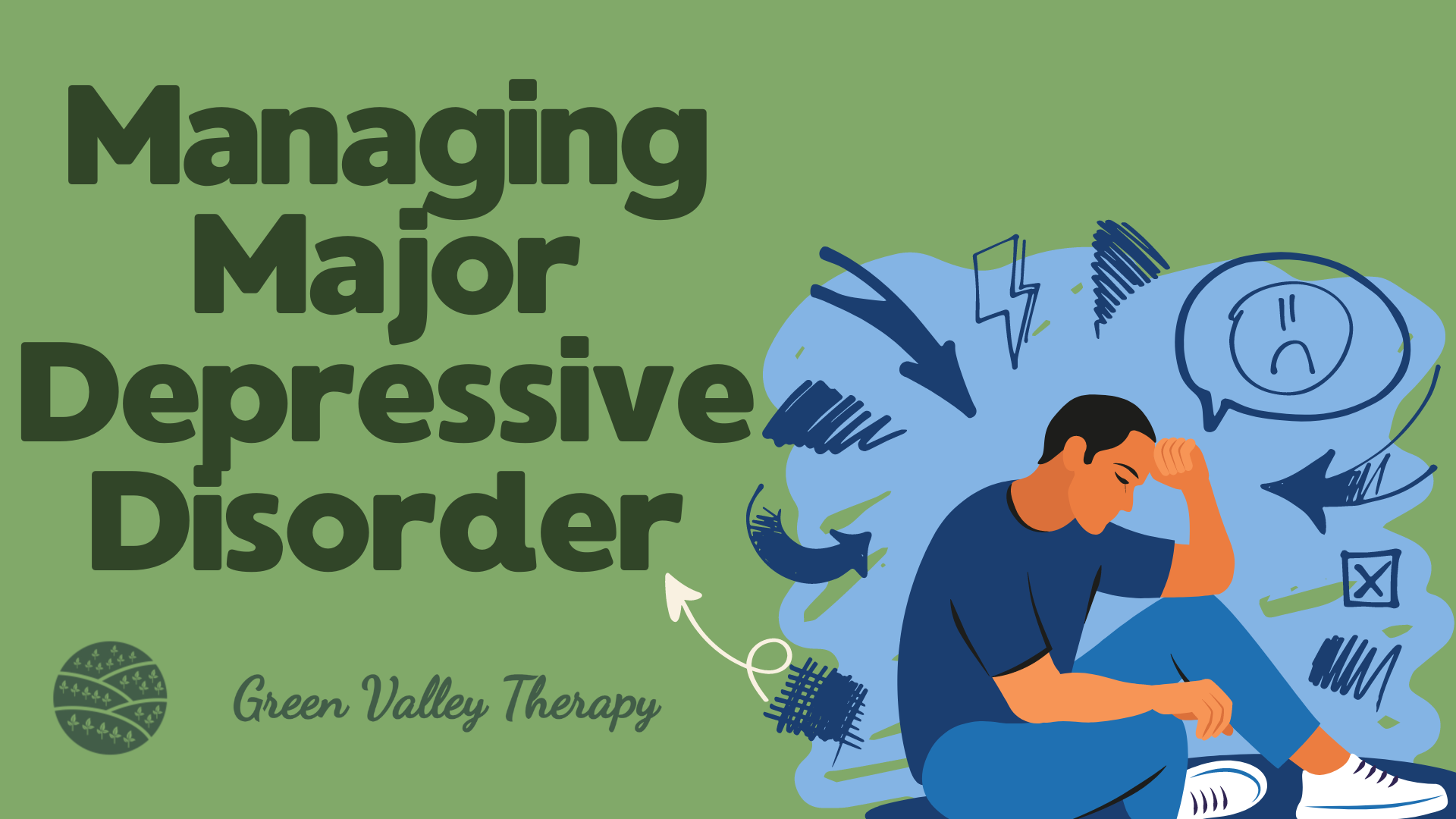Managing Major Depressive Disorder: A Comprehensive Guide
Major Depressive Disorder (MDD), often known as depression, is a multifaceted mental health condition that impacts millions of people globally. It is marked by enduring feelings of sadness, disinterest in activities that were once enjoyable, and a variety of physical and emotional challenges. MDD can have a profound impact on an individual's daily functioning.
At Green Valley Therapy, we understand the intricacies of managing depression and offer this guide as a beacon of hope and direction for those seeking to navigate these turbulent waters.
Understanding Major Depressive Disorder
Major Depressive Disorder (MDD) is a complex mental health condition that goes beyond temporary feelings of sadness or grief. It requires understanding, proper treatment, and a supportive network to address effectively.
Symptoms of MDD can include:
Persistent sadness, anxiety, or "empty" mood
Feelings of hopelessness or pessimism
Irritability
Feelings of guilt, worthlessness, or helplessness
Loss of interest in hobbies and activities
Decreased energy or fatigue
Difficulty concentrating, remembering, or making decisions
Sleep disturbances
Appetite changes
Thoughts of death or suicide
If you are experiencing any of these symptoms, it's crucial to seek professional help. Green Valley Therapy's specialized therapy for depression is designed to provide the support and strategies needed to manage and overcome MDD.
A Multifaceted Approach to Managing MDD
1. Professional Therapy
Therapy is a cornerstone in the treatment of MDD. Cognitive Behavioral Therapy (CBT), in particular, is highly effective. It involves working with a therapist to identify and challenge negative thought patterns and behaviors and develop healthier ones. Our therapists are trained in CBT and tailor their approach to meet the unique needs of each individual.
2. Medication
In some cases, medication may be recommended as part of the treatment plan. Antidepressants can help adjust the brain chemicals that influence mood and stress. It's important to have an open dialogue with your healthcare provider about the benefits and side effects of medication.
3. Lifestyle Adjustments
Incorporating healthy lifestyle habits can significantly impact the management of MDD. Regular exercise, a balanced diet, adequate sleep, and mindfulness practices like meditation can improve symptoms. At Green Valley Therapy, we encourage a holistic approach to managing depression, considering all aspects of an individual’s life.
4. Support Systems
Having a strong support system of family, friends, and support groups can provide emotional comfort and practical help. Moreover, sharing experiences with others facing similar challenges can foster a sense of community and understanding.
5. Ongoing Self-Care
Self-care is an essential part of managing MDD. It involves taking time for yourself, engaging in activities you enjoy, and practicing self-compassion. Remember, it’s okay to ask for help and take things one step at a time.
Navigating Challenges and Seeking Help
It's important to recognize that managing MDD is a journey, not a destination. There will be challenges along the way, but with the right strategies and support, it is possible to live a fulfilling life despite depression.
If you or someone you know is struggling with MDD, Green Valley Therapy is here to help. Our expert team offers compassionate, evidence-based therapy for depression tailored to each individual's needs. We believe in empowering our clients to take control of their mental health and find paths to healing and resilience.
A Word From Green Valley Therapy
Managing Major Depressive Disorder is a comprehensive process that involves professional help, lifestyle changes, and the support of loved ones. At Green Valley Therapy, we're dedicated to providing the tools and support necessary for those affected by MDD to navigate their way toward a brighter, healthier future. Remember, seeking help is a sign of strength, and with the right treatment and support, recovery is within reach.



